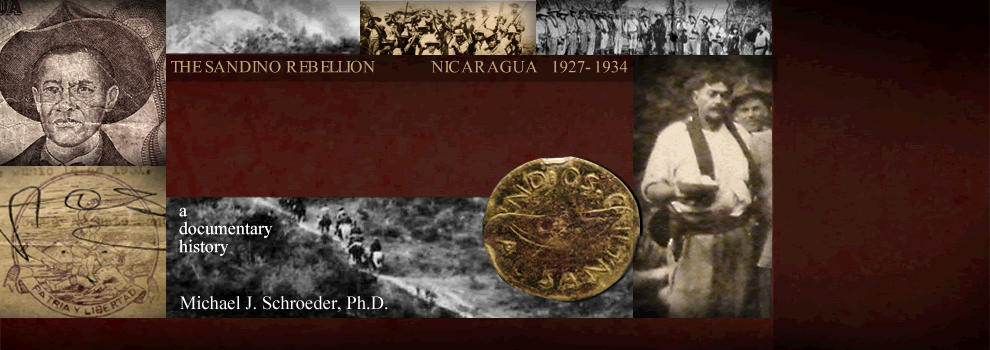
 |
|
M —
D O C S: M I S C E L L
A N E O U S D O C U M
E N T S |
|
thru 1927 |
1928 |
1929 |
1930 |
1931 |
1932 |
1933 + |
|
1
|
2
|
3
|
4
|
5
|
6
|
7
|
8
|
9
|
10
|
11
|
12
|
1
2
3
4
5
6
7
8 9
10 |
1
2
3
4
5
6 |
7
8
9
10
11
12 |
1 2 3 4 5 6 |
7 8 9 10 11 12 |
1 2 3 4 5 6 |
7 8 9 10 11 12 |
1 2 3 4 5 6 |
7 8 9 10 11 12 |
1 2 3 4 5 6 |
7 8 9 10 11 12 |
1 2
3 4 5 6
7 8 9 10 |
|
THIS IS THE FIFTH
PAGE
of the M-DOCS (Miscellaneous Documents) pages,
covering the month of July 1927. The page
is in progress.
This website project is
indebted to Mr. Brandon Ray, Summa Cum Laude
college graduate from Ashford University in Iowa
(with a B.A. in History and a minor in Political
Science) for his meticulous transcriptions on
this and many other pages.
|
|
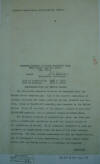
|
1.
July 1, 1927.
"Concrete Results in Trade Extension Work" (Year
Ended June 30, 1927), US Consul A. J. McConnico,
p. 1.
"Consular Regulations, Paragraph No. 601(d). ¶
CONCRETE RESULTS IN TRADE EXTENSION WORK. ¶
(Year ended June 30, 1927) ¶ (No. 180.) ¶ Consul
A. J. McConnico, ¶ Bluefields, Nicaragua. ¶ Date
of preparation: July 8, 1927. ¶ Date of mailing:
July 8, 1927. ¶ DEPENDENCE UPON THE UNITED
STATES. ¶ The Bluefields Consular District is
dependent upon the United States commercially.
All of its exports consisting of bananas,
mahogany and cedar, gold and silver, coconuts
and turtles, valued at $3,000,000 annually, are
absorbed by the United States. Fully 85 per
cent. of its imports, valued at more than
$2,000,000 annually, are of American origin or
manufacture. ¶ The district produces no
manufactured goods, nor food products in
sufficient quantities to meet the limited demand
of its population of 50,000. It is compelled
therefore to seek all varieties of manufactured
goods and most of its food products elsewhere.
Its only steamer connection is with the United
States, and in consequence of long association,
it deals almost exclusively with the United
States in purchasing its supplies. ¶ AMERICANS
[…]"
|
|
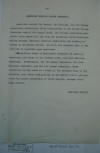
|
2.
July 1, 1927.
"Concrete Results in Trade Extension Work" (Year
Ended June 30, 1927), US Consul A. J. McConnico,
p. 2.
"[...] AMERICANS CONTROL LARGER INTERESTS.
¶ Americans control the banana, the mahogany,
and the mining industries, maintaining their
headquarters in the United States. Americans
control the import trade, the leading commission
merchants being Americans, and even the
principal retail merchants, mainly Chinese,
maintain American connections and banking
accounts in the United States. In fact, the
economic life of the district is dependent upon
Americans. ¶ Six American firms of Bluefields
represent 35 American exporters; and three of
the foreign firms, six more American exporters.
Furthermore, the two mining companies, the five
mahogany companies, and the two banana
companies, whose operations really serve as a
basis of the economic life of the district, have
their headquarters in the United States and
purchase the larger proportion of their supplies
through their home offices. ¶ CONSULAR EFFORTS.
[...]"
|
|
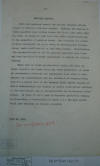
|
3.
July 1, 1927.
"Concrete Results in Trade Extension Work" (Year
Ended June 30, 1927), US Consul A. J. McConnico,
p. 3.
"[...] CONSULAR EFFORTS. ¶ With such American
control and rivalry consular efforts cannot be
credited with much success. Although 109 replies
to trade inquiries were written during the
fiscal year ended June 30, 1927, it cannot be
said that this office aided materially in the
promotion of American trade. The situation was
rather critical throughout the year, owing to
revolutionary disturbances, trade conditions at
no time being normal. Nevertheless, the
representatives of the 41 American exporters
were alert and took advantage of every
opportunity to satisfy the limited demands. ¶
There were no trade opportunities during the
year; no trade disputes, nor cases involving
trade protection; no cases of governmental
contracts and concessions upon which to base
reports; no construction work nor extension of
transportation facilities except that of the
Bragmans Bluff Lumber Company at Puerto Cabezas
(which was carried on amidst difficulties
incident to the revolution); and no
reconstruction and development enterprises. In
fact, it was a year of business inactivity
verging on stagnation, a continuation of which
for a few more months would have resulted in
economic disaster. ¶ File No. 610."
|
|
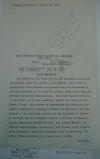
|
1.
July 13, 1927.
"Trade Promotion Work at Bluefields, Nicaragua,"
US Consul A. J. McConnico, p. 1.
"(General
Instruction, Consular, No. 289.) ¶ TRADE
PROMOTION WORK AT BLUEFIELDS, NICARAGUA. ¶ (No.
181.) ¶ Consul A. J. McConnico, ¶ Bluefields,
Nicaragua. ¶ Date of preparation: July 13, 1927.
¶ Date of mailing: July 13, 1927. ¶ TRADE
EXTENSION. ¶ The commercial and other work of
the Bluefields Consulate is entirely under the
control of the Consul. When trade inquiries and
other letters are received they are classified
by him and delivered to the clerk for record,
after which they are returned to him for
consideration. He either dictates replies to the
clerk, or in some instances, writes the reply
for the clerk to copy. His sources of
information are based upon inquiries submitted
to leading merchants and importers; upon the
records of the consulate, reports of the
Collector of Customs at El Bluff and the
Collector General of Customs at Managua, and the
Nicaraguan Customs Tariff. All correspondence,
including trade letters, is signed by the
Consul, there being no other officer to whom
such authority could be delegated, the office
force consisting of a consul and a clerk. ¶
According […]"
|
|
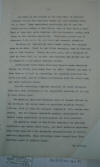
|
2.
July 13, 1927.
"Trade Promotion Work at Bluefields, Nicaragua,"
US Consul A. J. McConnico, p. 2.
"[...]
According to the records of the consulate, 24
American salesmen visited the consulate during
the last calendar year, and to date. They
constituted practically all of such
representatives calling at Bluefields, some of
them twice a year. Most of them were quite
familiar with the district, having made trips to
this section repeatedly. Their main purpose was
to ascertain facts as to the political and
economic situation. ¶ No Forms No. 244-Revised
were issued during the calendar year or to date.
There is but little traveling done by business
men of this section. Those, who have gone, had a
definite object in view; that is, to meet some
business man of New Orleans in regard to a
particular business matter. ¶ Sixty-eight World
Trade Directory Reports were submitted during
the fiscal year ended June 30, 1927. Efforts are
made to keep them up to date by consulting the
concerns upon whom reports are made, and by
seeking information from the local bank and
other reliable firms. ¶ Reports concerning
concrete results of trade extension work have
been forwarded to the Department annually at the
end of each fiscal year. ¶ No American importers
maintain main or branch offices in the district,
but seven American exporters maintain branch
offices. Five of them are mahogany companies;
two, banana companies. The two banana companies
operate commissaries and import large quantities
of merchandise and food products. ¶ Six American
firms of Bluefields represent 35 American
exporters; and three other firms, six more
American exporters. Some firms also have the
exclusive representation of certain American
exporters, thus preventing local competitors
from handling goods of similar brand. ¶ No
foreign […]"
|
|
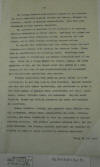
|
3.
July 13, 1927.
"Trade Promotion Work at Bluefields, Nicaragua,"
US Consul A. J. McConnico, p. 3.
"[...]
No foreign manufacturers maintain offices in the
district. One local commission house (R. Fransen
and Company, Belgian) represents a number of
European manufacturers. This firm also
represents several American exporters. ¶ The
practice of importers in the district is to
purchase American merchandise on direct orders.
Sometimes the orders are placed through local
commission houses, especially for food stuffs,
and at times through traveling representatives.
¶ No reports were submitted from this office
during the last calendar year dealing with
openings for American trade. There were no
opportunities for promoting trade. Conditions
were chaotic owing to hostilities and warlike
activities most of the time. There was a strong
demand for rifles, cannon, and other munitions
of war, and the demand could have served as a
real opening for the sale of such manufactures
had not statecraft dictated measures prohibiting
such imports. ¶ Foreign competition with
American goods, except in a few particulars, is
not very keen in this district. English threads
and teas are sold almost exclusively, and
preference is given to the finer grades of
English dress goods (cotton and silk),
cassimeres, linens, Victoria lawns, and
nainsooks. English sweet biscuits, tinned and
bottled preserves and meats are demanded in
quantities. ¶ German blankets, hosiery, and
enameled ware, Italian hats and cottonades,
French dress goods (cotton and silk), ribbons,
hosiery, and fancy foodstuffs in tins are
preferred to similar American products. The
average consumer contends that, for the price
demanded, the foreign products mentioned are
superior in quality or grade to those supplied
by American exporters. ¶ Fully 85 per cent. […]"
|
|
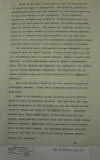
|
4.
July 13, 1927.
"Trade Promotion Work at Bluefields, Nicaragua,"
US Consul A. J. McConnico, p. 4.
"[...]
Fully 85 per cent. of the imports into the
district are of American origin or manufacture.
The district produces no manufactured goods; nor
food products in sufficient quantities to meet
the demands of its population. It is compelled,
therefore, to import all varieties of
manufactured goods and most of its food products
from abroad, the greater proportion from the
United States. The annual and quarterly reports,
and those on concrete results of trade extension
contain sections relating to imports from other
countries and the preference given to them,
especially the supplemental annual reports based
upon the annual reports of the Collector General
of Customs. ¶ No countries enjoy preferential
customs treatment in the district over the
United States. France at one time did, but the
preferential rate no longer obtains. Under a
treaty with Honduras, certain Honduranean
[Honduran] products enjoy a preferential rate,
but the imports from Honduras are negligible,
not affecting the larger exporting countries.
The Department was no doubt informed years ago
of the preferential rate enjoyed by Honduras. ¶
The local customs tariff is for the specific
purpose of collecting revenue. There are no
domestic industries to be protected. ¶ There is
no prejudice in the district against American
goods or American business methods. The fact
that the only steamer connection of the district
is with the United States tends to direct all
trade to the United States. Importers realize
that their orders can be filled more quickly,
and really prefer American products that meet
with a ready demand. Certain products, mentioned
above, are imported from Europe owing to the
local demand. In obtaining European products,
owing to the fact that there is no direct
steamer service, delays are frequent. ¶ The […]"
|
|
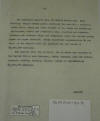
|
5.
July 13, 1927.
"Trade Promotion Work at Bluefields, Nicaragua,"
US Consul A. J. McConnico, p. 5.
"[...]
The principal imports from the United States
are: Food products; staple cotton goods;
machinery for saw mills, railways, sugar mills,
mines and other classes of machinery and
electrical appliances; paints and varnishes;
oils, gasoline and kerosene; hardware and
cutlery; drugs and chemicals; shoes and leather
goods; paper and paper products. These
constitute approximately 85 per cent. of the
imports into the district and are valued at
$2,000,000 annually. ¶ The exports from the
district, all of which are absorbed by the
United States are: Mahogany, cedar, bananas,
gold and alloys, coconuts, rubber, turtles,
silver, valued at approximately $3,000,000
annually. ¶ BANKING […]"
|
|
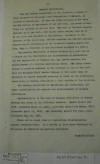
|
6.
July 13, 1927.
"Trade Promotion Work at Bluefields, Nicaragua,"
US Consul A. J. McConnico, p. 6.
"[...]
BANKING INSTITUTIONS. ¶ “The one banking
institution of the district, a branch of Banco
Nacional de Nicaragua with headquarters at
Managua, is located at Bluefields. It buys and
sells exchange on New York and New Orleans at
one-fourth of one per cent., and makes
collections for one-half of one per cent. The
rate of interest usually demanded is 12 per
cent., but higher rates varying from 18 to 24
per cent. are demanded by individuals. According
to the estimate of the local bank, 300,000
cordobas and 100,000 American dollars are in
circulation in the district.” (Annual Report for
1926, Page 6, forwarded to the Department on
March 26, 1927.) ¶ The growing importance of
Puerto Cabezas as a port and as a center for the
importation and distribution of merchandise and
the exportation of bananas and pine lumber
warrants the establishment of a banking
institution there. The large circulation of
American currency in the district is due to the
fact that the Bragmans Bluff Lumber Company at
that port finds it necessary to import American
currency to carry on its operations, there being
no banking facilities in that section of the
district. ¶ The banking facilities at Bluefields
are sufficient, and trade conditions do not
warrant the establishment of another
institution. ¶ Information as to the lack of
banking facilities at Puerto Cabezas was given
in the following reports: Annual Report for
1925, forwarded March 31, 1926; Quarterly Report
for March, 1926, forwarded April 13, 1926; and
Quarterly Report for June, 1926, forwarded July
10, 1926. ¶ There are no local laws or
regulations discriminating against American
banks. As a matter of fact Banco Nacional de
Nicaragua is dominated by American interests. ¶
TRANSPORTATION. [...]"
|
|
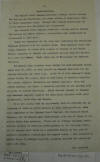
|
7.
July 13, 1927.
"Trade Promotion Work at Bluefields, Nicaragua,"
US Consul A. J. McConnico, p. 7.
"[...]
TRANSPORTATION. ¶ The Cuyamel Fruit Company
maintains a weekly service between New Orleans
and Bluefields, its ships calling at Cienfuegos,
Cuba, on their southbound trips. Through this
company practically all of the imports into
Bluefields are transported. ¶ The Standard Fruit
Company maintains a 15-day service between New
Orleans and Puerto Cabezas, transporting such
merchandise as is demanded at that port. ¶ These
two companies are the only ones connecting the
Bluefields Consular District with the outside
world. They maintain their services primarily to
return with cargoes of bananas to the United
States, engaging in freight and passenger
service from New Orleans as a mere side issue.
Their ships are of Nicaraguan and Honduran
registry. ¶ The Munson Line provided ships
during the last mahogany season ended June 30,
1927, at such periods as demands were made for
exporting mahogany and cedar logs. About 30 of
this company’s ships called during the season,
nine of them being of American registry, the
others, English, Norwegian and Danish registry.
This was rather unusual, for ships of American
registry do not usually call at ports of eastern
Nicaragua. Small coastal vessels of Panaman
[Panamanian] and Honduran registry connect the
Bluefields district with ports of Honduras,
Costa Rica and Panama. ¶ It is not likely that
an opportunity will be afforded for an increase
of American participation in such
transportation, when such companies as the
Cuyamel Fruit Company, the Standard Fruit
Company, and the Munson Line deliberately make
use of ships of registry other than American.
There are no foreign shipping combinations
hostile to American participation in the
carrying trade, but it appears that there is a
concerted demand on the part of American
interests controlling the export trade of the
district to employ ships of foreign registry,
possibly because the operation costs are less. ¶
The American […] "
|
|
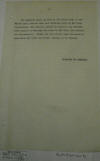
|
8.
July 13, 1927.
"Trade Promotion Work at Bluefields, Nicaragua,"
US Consul A. J. McConnico, p. 8.
"[...]
The American ships, as well as the other ships
of the Munson Line, arrived from such American
ports as New York, Philadelphia, New Orleans,
always in ballast, and returned with cargoes of
mahogany and cedar to New York, New Orleans, and
Philadelphia. During the past fiscal year the
American proportion was about one-third; usually
it is nothing. ¶ CHAMBERS OF COMMERCE. [...]"
|
|
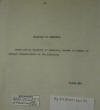
|
9.
July 13, 1927.
"Trade Promotion Work at Bluefields, Nicaragua,"
US Consul A. J. McConnico, p. 9.
"[...]
CHAMBERS OF COMMERCE. ¶ There are no chambers of
commerce, boards of trade, or similar
organizations in the district. ¶ TRADE AND […]"
|
|
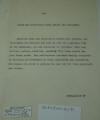
|
10.
July 13, 1927.
"Trade Promotion Work at Bluefields, Nicaragua,"
US Consul A. J. McConnico, p. 10.
"[...]
TRADE AND STATISTICAL PUBLICATIONS AND
CATALOGUES. ¶ American trade and statistical
newspapers, reviews, and catalogues are received
and kept on file in a seperate [separate] room
of the consulate, and are available to visitors.
They are, however, seldom consulted, possibly
five times within the past three years. The
publications are made readily available to
visitors for reference by being classified and
segregated. Old issues are given to persons who
may ask for them; merchants and others. ¶
PREPARATION OF […]"
|
|
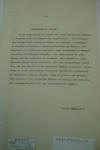
|
11.
July 13, 1927.
"Trade Promotion Work at Bluefields, Nicaragua,"
US Consul A. J. McConnico, p. 11.
"[...]
PREPARATION OF REPORTS. ¶ In the preparation of
reports and trade letters information is
obtained from individuals and organizations. For
instance, the Cuyamel Fruit Company’s manager is
consulted in reference to matters pertaining to
banana cultivation and exports; the managers of
the mahogany companies, when information is
desired regarding the mahogany industry. The
same applies to gold mining and the production
of coconuts, the managers of such concerns
always being consulted. The only publications
relied upon are the reports of the Collector
General of Customs, there being no local
publications supplying statistical information
of commercial value or weight. When statistics
and excerpts from reports of the Collector
General of Customs are used they are accompanied
with full and interpretative comment. ¶ TRADE
COMPLAINTS. [...]"
|
|
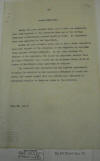
|
12.
July 13, 1927.
"Trade Promotion Work at Bluefields, Nicaragua,"
US Consul A. J. McConnico, p. 12.
"[...]
TRADE COMPLAINTS. ¶ During the past calendar
year, and to date, no complaints have been
received at the consulate from any of the
foreign merchants of Bluefields against American
firms. No complaints have been submitted to the
Department. ¶ During the past calendar year, and
to date, three complaints have been brought to
the attention of the consulate by American firms
against foreign merchants. In one case, through
the efforts of the consulate, the claim was
adjusted; another case is being litigated; and a
third was an outlawed claim, which no lawyer of
Bluefields would undertake to collect. ¶ The
consulate has therefore had but limited
opportunity in using its services in the
amicable settlement of trade disputes; and
cannot assert that its efforts have resulted in
increased prestige to American trade in the
district. ¶ File No. 125.6."
|
|
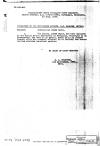
|
July 16, 1927. "Memorandum to the
Commanding Officer, U.S. Marines, Estelí" on
Interpreter Moses Mejía," 1st Lt. D. A.
Stafford, Matagalpa.
"58-DAS-wib ¶
HEADQUARTERS THIRD BATTALION FIFTH REGIMENT, ¶
SECOND BRIGADE, U.S. MARINE CORPS, MATAGALPA,
NICARAGUA, ¶ 16 July, 1927. ¶ MEMORANDUM TO THE
COMMANDING OFFICER, U.S. MARINES, ESTELI: ¶
Subject: Interpreter MOSES MEJIA. ¶ 1. The
bearer, MOSES MEJIA, has been employed by the
United States Government at Matagalpa, Nicaragua
as an interpreter. His home is in Esteli, where
he is at present looking after his personal
affairs. He is faithful and honest and has
rendered excellent service. ¶ BY ORDER OF MAJOR
SHEARER: ¶ D. A. STAFFORD, ¶ 1st Lieutenant,
USMC., ¶ Bn-1."
|
|
|
|
|
NEXT PAGE
|
|
|
|
